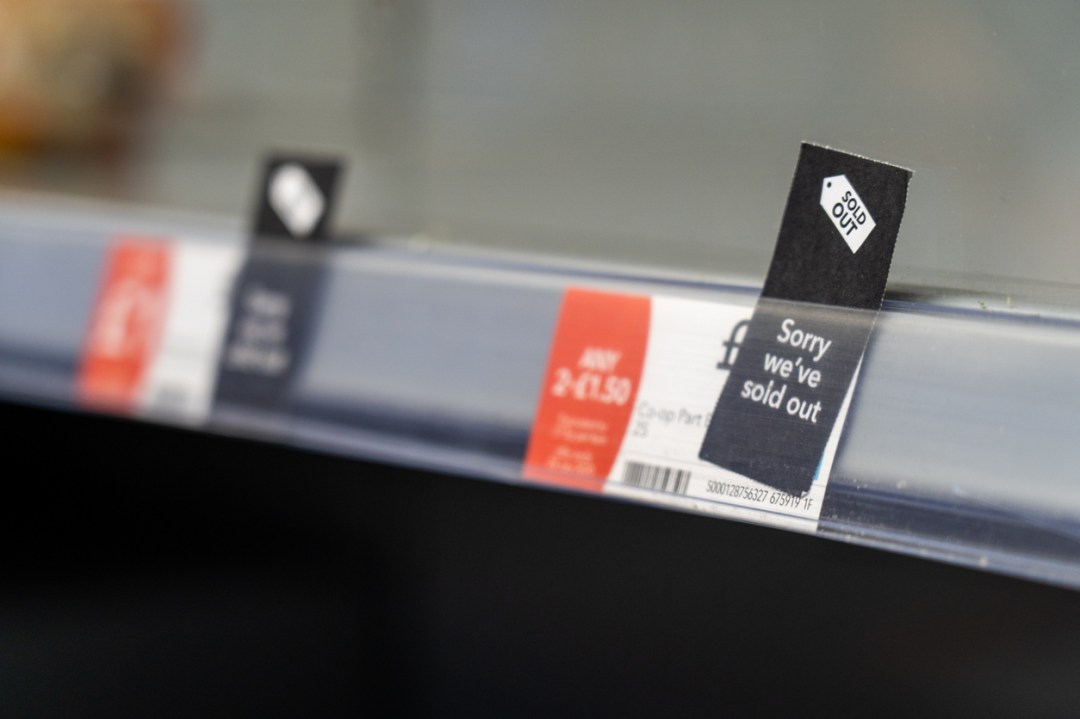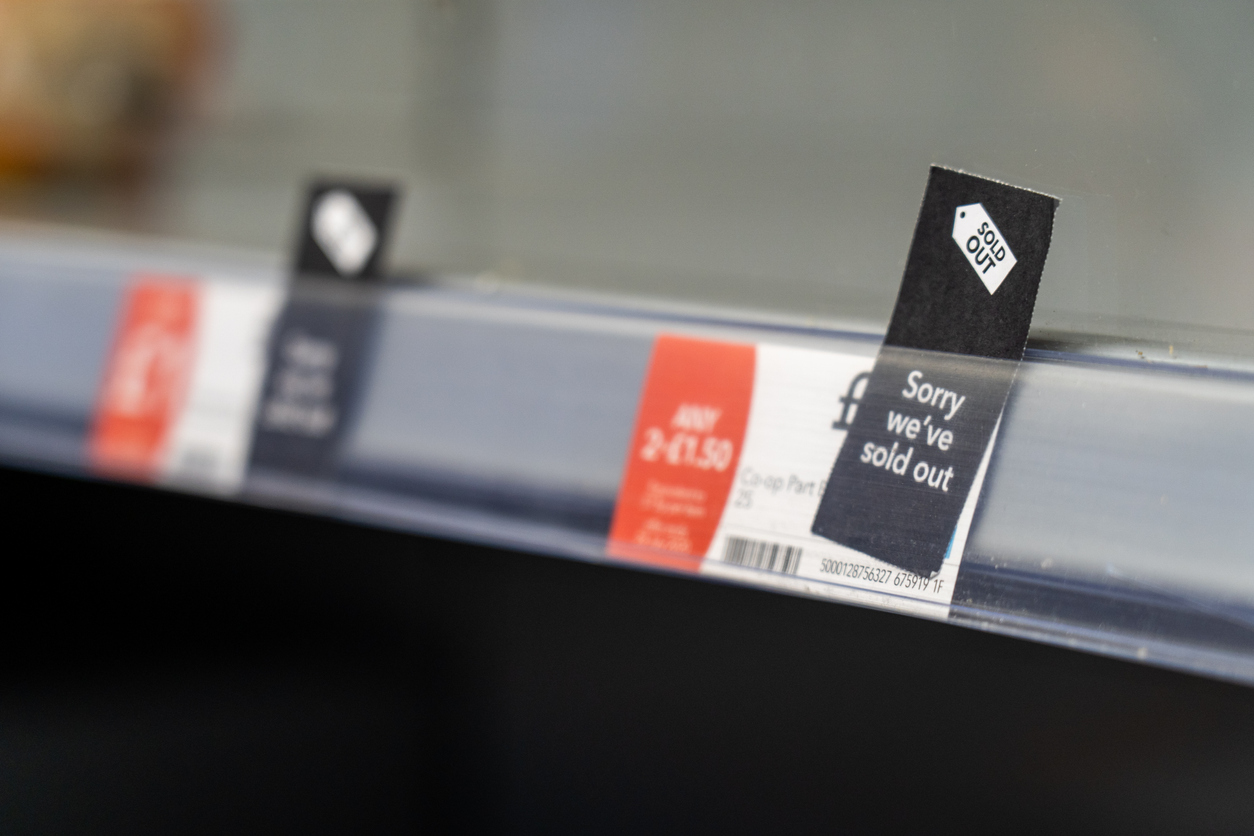It wasn’t long ago that supermarkets stood accused of selling food too cheaply. Their price wars and two-for-the-price-of-one deals were destroying farmers, undermining local shops and making us fat. How long ago that now seems, with the government now considering 1970s-style price controls. While the measures would apparently be voluntary, they would fix the prices of a number of basic foodstuffs – the sort which Jack Monroe keeps her eyes on.
The price of price-fixing is likely to be more pictures of empty shelves, which of course will be blamed on Brexit
You don’t need to have studied economics in any depth to understand the problem with price controls. In a free market, prices settle at the intersection of the supply and demand curves, ensuring that both are kept in balance. Mess around with that by trying to fix prices, and you are liable to end up with Soviet-style shortages and queues. The price of price-fixing is likely to be more pictures of empty shelves, which of course will be blamed on Brexit – a charge which the government will struggle to deflect in the eyes of many.
Food prices have been rising sharply not because supermarkets have been profiteering, as many on the left are apt to say, but because global food supply chains have been under pressure, partly as a result of a global economy that has been struggling to recover from the disruption caused by the pandemic, and partly because of the Ukraine invasion. Ukraine is a very significant exporter of food.
Those pressures are beginning to abate, but it will take time to feed through to the supermarket shelves. But if you want to tackle inflation you don’t try to fix food prices. It is secondary inflation which is the real danger – where workers try to bid up pay in order to keep ahead of inflation, which has a tendency to set off an inflationary spiral. This is where the government has been feeble. It has stood back from industrial disputes on the railways, in particular, even though they are subsidised up to the eyeballs with taxpayer cash.
As for the supermarkets, they are far from making fat profits. On the contrary, they have been subsisting on wafer thin profit margins for years, especially since Aldi and Lidl started to eat the big four’s lunch. Just look how the big supermarkets have been slashing costs by closing delicatessen counters and the like.
All that said, the industry is used to a business environment where loss leaders are used to entice people into the shop, where they can be persuaded to pay over the odds for other goods. So, yes, they will be willing to do a deal with the government, and agree to keep prices of basic foodstuffs down – so long, that is, that they can get away with more shrinkflation on other goods.
But they won't get away with that, because people will inevitably notice. Ultimately, there is one rule which governs the relationship between supermarkets and the rest of society: the supermarkets can never win.








Comments